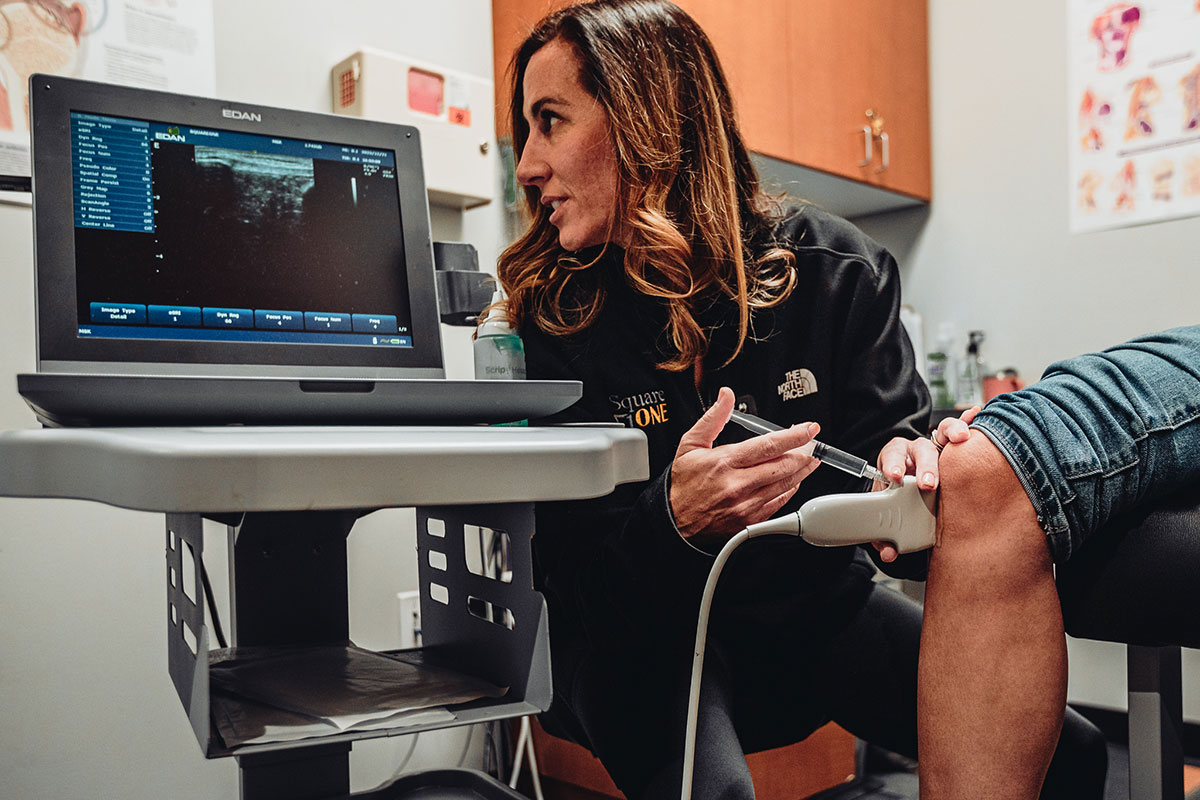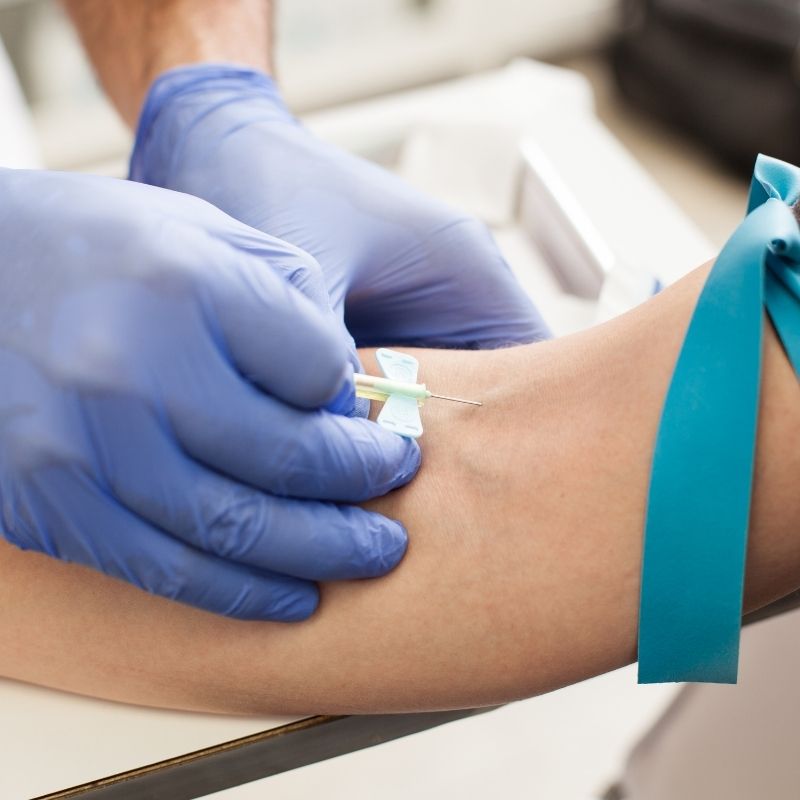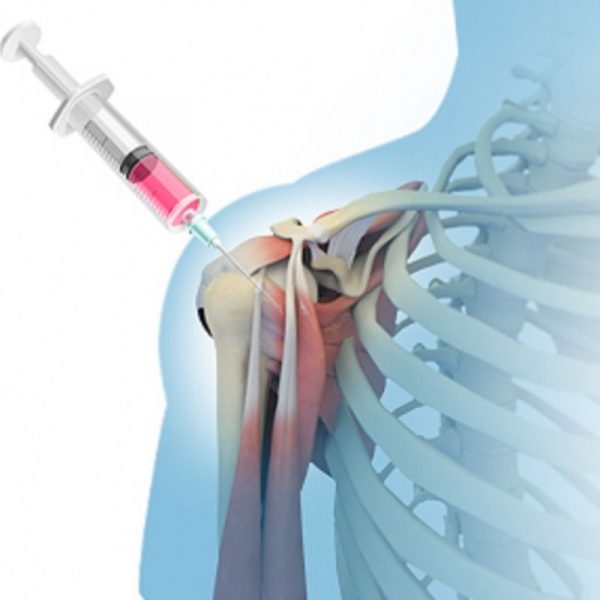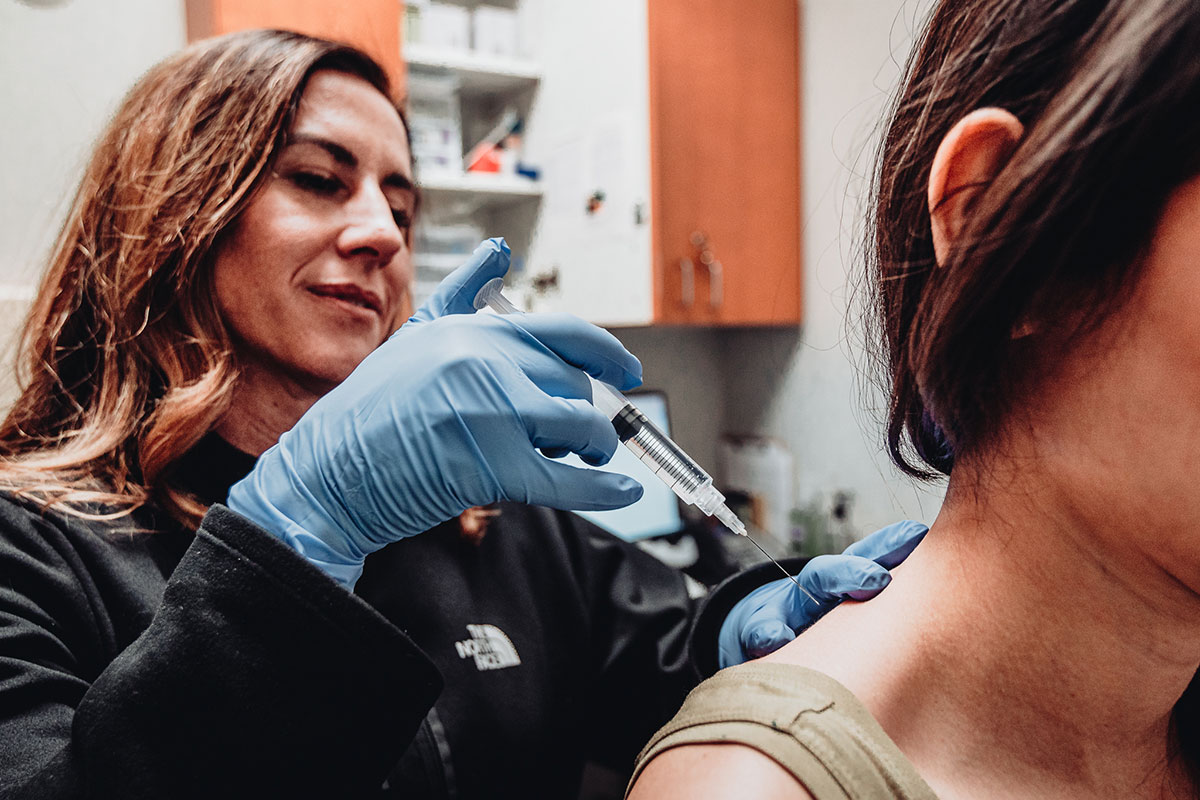Joint Injections in Fort Collins, CO
Are joint injections right for you? (Take the following quiz)
Discover Relief with Joint Injections
Don't Wait!
Schedule your new patient consultation now.
Take advantage of our limited time offer. Call or schedule online today!
The Procedure
The process is swift and efficient, typically requiring only about 20 minutes, followed by a short recovery period. Our healthcare providers are skilled in the use of ultrasound—a real-time imaging technique that guides the needle with precision to the most beneficial location within the joint. This ensure the inject is delivered effectively for optimal pain relief and tissue regeneration.
Patients often report a sensation of immediate relief following the injection. While some may experience mild swelling and soreness as the day progresses, these symptoms are normal and transient. They are simply the body’s natural response to the injection and should not be a cause for concern. Within a few days, patients typically notice a significant improvement in their joint function and discomfort levels.
Versatile Treatment for Various Joints
Our joint injection therapy is not limited to a single type of joint but can be applied to various areas of the body prone to pain and inflammation, such as the hips, knees, shoulders, and wrists. These injections are particularly effective in managing conditions like:
- Bursitis: where inflammation of the bursae causes pain.
- Gout: characterized by intense pain due to uric acid crystal deposits in the joint.
- Osteoarthritis: where the cartilage wears down over time.
- Psoriatic arthritis: an inflammatory arthritis associated with psoriasis.
- Rheumatoid arthritis: an autoimmune disorder that affects the lining of the joints.
- Tendonitis: inflammation or irritation of the tendons.
Types of Joint Injections Offered
At our clinic in Fort Collins, we provide a variety of joint injections, each tailored to meet the specific needs of our patients:
Viscosupplementation or HA Injections
When other nonsurgical pain-relief methods fall short, viscosupplementation becomes a valuable option. This treatment involves injecting hyaluronic acid—a substance naturally found in the synovial fluid of joints—into the knee to restore lubrication and cushioning. It’s especially useful for patients with osteoarthritis who have diminished levels of hyaluronic acid in their joints.
Cellular Products
Addressing the degeneration of muscles, ligaments, tendons, and cartilage due to aging or injury, Cellular Products injections promote the body’s innate repair processes. These injections are administered with the aid of ultrasound imaging to ensure precise delivery to the affected area, fostering an environment conducive to healing and pain reduction.
Understanding the Difference: Trigger Point vs. Joint Injections
While both trigger point and joint injections are non-surgical procedures that provide long-term pain relief, they serve different purposes:
- Trigger Point Injections are ideal for treating muscle spasms or chronic tension. These injections work by temporarily disabling the muscle, preventing it from contracting, thereby allowing it to relax and alleviating the cycle of pain and spasm.
- Joint Injections, on the other hand, are specifically designed to target joint pain. Joint injects are used to delivers regenerative medicine treatments to decrease inflammation, reduction pain and repair and regenerate damaged tissue.
Determining the most appropriate form of injection therapy can be complex, but you don’t have to make this decision alone. Our healthcare experts are dedicated to guiding you through the options and helping you select the treatment that aligns with your unique condition.
We invite you to reach out and schedule a consultation with us. Together, we can embark on a journey to restore your mobility and achieve pain-free living. Contact Square One Health today and take the first step towards reclaiming the comfort and ease of movement you deserve.
FAQs
What types of joint pain can be treated with injections?
Joint injections are versatile treatments for a variety of joint-related pains. We commonly treat conditions such as arthritis (including osteoarthritis, rheumatoid arthritis, and psoriatic arthritis), bursitis, gout, tears (in ligaments, tendons, and muscle tissue), and tendonitis. Our treatments are suitable for pain in the hips, knees, shoulders, and wrists.
How long does it take to feel relief after a joint injection, and how long does the relief last?
Many patients experience immediate relief following the injection, although it’s normal to have some swelling and soreness initially. The pain relief can last for several months, but the duration varies depending on the individual’s condition and the type of injection used.
Are there different types of joint injections available, and how do I know which one is right for me?
Yes, we offer several types of joint injections, including Platelet Rich Plasma (PRP) Injections, Viscosupplementation (HA Injections), and Cellular Products. The right type of injection for you will depend on your specific condition, medical history, and our healthcare providers’ assessment.
What is the recovery time after a joint injection, and are there any restrictions post-procedure?
The joint injection procedure is quick, usually taking about 20 minutes, with a brief recovery period. Most patients can resume their normal activities shortly after the injection. However, we may recommend avoiding strenuous activities for a short period to ensure the best outcome.
Can joint injections be used as a treatment for conditions other than osteoarthritis?
Absolutely. While osteoarthritis is a common condition treated with joint injections, these treatments are also effective for other conditions that cause joint pain, such as rheumatoid arthritis, bursitis, and injuries that result in joint pain.
What makes your approach to joint injections unique?
Our approach is patient-centric, utilizing advanced imaging techniques like fluoroscopy and ultrasound guidance to ensure precision in injection placement. We offer a range of injection options tailored to individual needs and focus on treatments that promote the body’s natural healing processes without the need for drugs or invasive surgery.
Symptoms
Possible Conditions
Schedule Now!
Reach out to us for any questions you might have!





